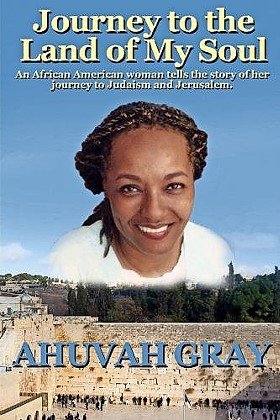African-American convert’s take on Tisha B’Av
In a rare observation concerning the saddest day on the Jewish liturgical calendar, Ahuva Gray, Chicago born granddaughter of sharecroppers from Mississippi and an adult convert to the Jewish faith, wrote about Tisha B’Av in her exquisite 2010 autobiography entitled, “Journey to the Land of My Soul.”
There is much to be learned from these wise words, a sample of which I choose to share here:
“Four years had elapsed since I had first observed the fast of Tisha B’Av. The meaning of the portentous event of Tisha B’Av of 1994, still plagued me. …
“I could better comprehend the pain I associated with the fast of Tisha B’Av by remembering the pain I associated with the pain of losing my mother. The loss of my mother exemplifies for me why the Jewish people mourn the loss of our Temple. Although I feel the pain of a great loss, it’s a pain that dissipates when I think about the glory of G-d that was revealed through her life.
“Through the eyes of a convert, I now know what it means to be comforted. Each of us, so to speak, had his own personal exile. Each exile carries with it a unique sin. Just as the Jewish people are in exile, so is a Jewish neshamah that resides inside a ger; just as the Jewish people long for their homeland, so does the Jewish neshamah.
Once a potential convert has been exposed to Judaism and the Jewish people, that neshamah starts to crave for the Jewish life. My neshamah found its home in Bayit VeGan [in Jerusalem].”
These heartfelt words confirm the truth of the adage that is reflected by the following: that words that come from the heart of the speaker, go to the heart of the listener.
After reading Ahuvah’s words, no one who is on the margins of faith can fail to come to theological and experiential grips with the reality of what our Jewish faith is all about.
Truly, it is astonishing as to how someone from the outside can come to view the special nature and value of the Jewish faith. This observation affirms that of Rabbi Aryeh Carmell, of blessed memory, who stated that, “It is my feeling that this book will help both Orthodox and non-Orthodox Jews to develop a new and deeper appreciation of their spiritual roots.”
Furthermore we have the observation from Rebbetzin Tziporah Heller who stated that, “Knowing Ahuvah Gray is a spiritual adventure. … Her story cannot fail to inspire us to make our own lives a bit bigger.”
Hopefully, your Tisha B’Av observance this year will be made just a bit more meaningful through the example of Ahuvah Gray who has chosen to devote her life to live and share with us both the grief that we experience and the richness that our history blends with the conviction of the liberation and salvation that we await in the days that are near in coming.
Originally published in 2012.

 46.0°,
Light Drizzle
46.0°,
Light Drizzle 




